INTERVIEW CONTINUED ON PREVIOUS PAGE
What was your first night behind the bar like?
Harris: It was the best night of my life. I worked for three weeks as a bar on Union Street, a very busy post-college, frat beer and shot bar, and I got hired as a barback there in my first summer off from college. Those three weeks were like the best three weeks of my life, then they hired a new manager, and he came to the conclusion that I was under 21. He gave me the ax immediately. It was great. It was very empowering. I remember that feeling. I remember that feeling that I had when I sought out that job, and all of my friends were also home from their first summer from college, and they were doing unpaid internships, the subject of which was bringing some guy coffee, and maybe getting something out of it, but I remember not wanting to go down that path. Not having any deep seated desire to work there, it was just like, this seems more up my alley, and when I did, those three weeks were probably more influential to me than the next two summers with legitimate jobs that I had. The high energy and pace to it.
Is that place still there?
Harris: It is still there. It’s kind of morphed even farther. It’s called the Bar None. When I was there, it was right when they switched over from another bar prior that had been there for a really long time, and that place is like romper room now. When you’re 18 years old, what could be better than that? You’re 18 years old and there are a bunch of 21-year-old girls running around this place, this is like the best thing ever.
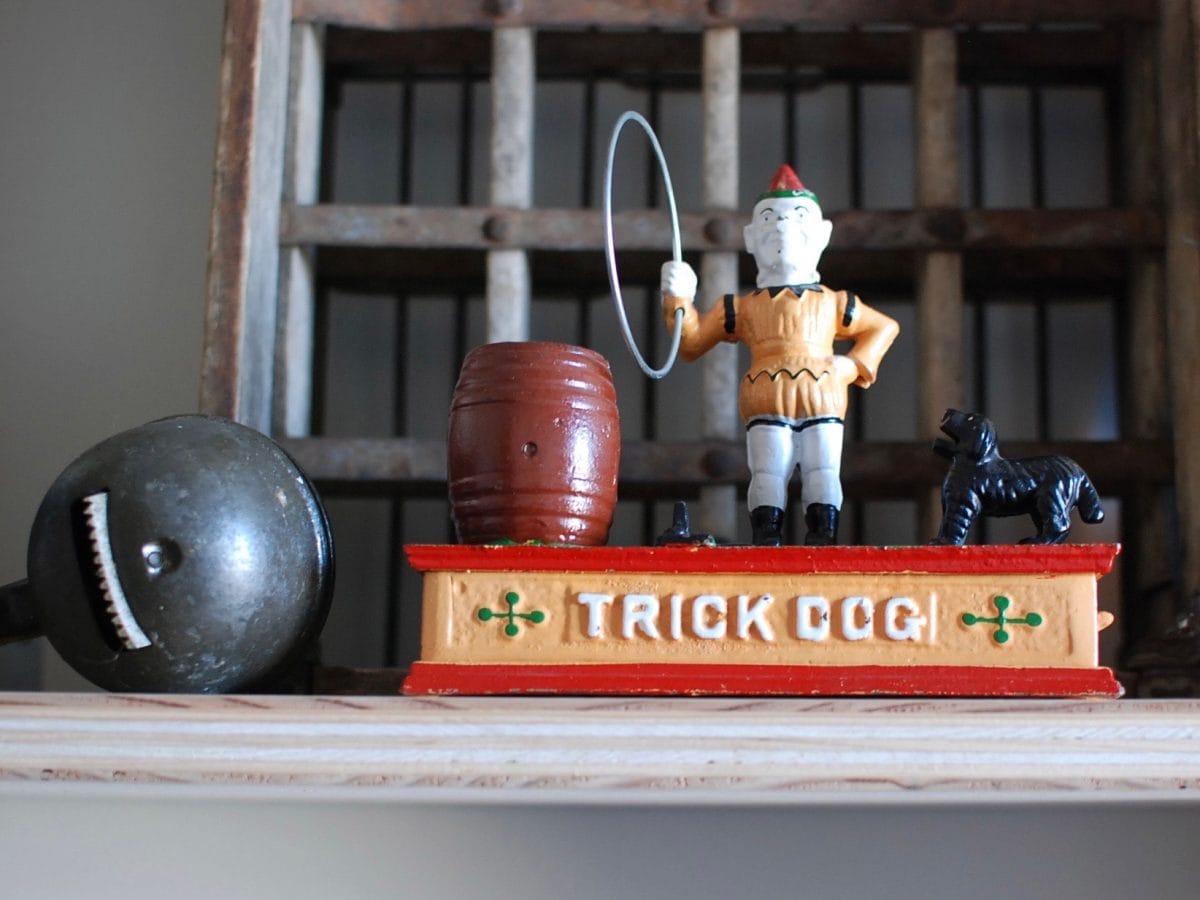
Trick Dog with vintage ice scraper
For Trick Dog, were you inspired by this?
[I point to the machine.]
Harris: Yeah, that is the one. Those kind of first started to show up in the 1850s. They made reproductions of them up until in the ’70s. From a collector’s standpoint, even the reproductions are valuable, just less valuable than the other ones. That one is probably from the ’70s. My dad bought it for me when I was a little kid, and I had it ever since. And when we were sitting around, Scott and I, and we have another business partner in the bar named Jason, we were all kind of sitting there, and in one of those a-ha moments, it was sitting above my TV, and that was the catalyst for the name. That will probably be displayed somewhere discretely in the bar. People are like, “Oh, are you going to cover the walls with like 1000 trick dogs?” We’re like, “No.”
That would be hard to budget for that based on what you were saying.
Harris: Right.
Knowing what you know now, having worked in the industry for awhile, and seeing what San Francisco has become cocktail wise, how much harder is it to stand out?
Baird: I don’t know if standing out is what we want to chase at this point. Our quality’s obvious. Good food, good drinks, good atmosphere. We’re looking to bring back a little fun to this bar scene. It’s gotten a little stuffy. We want to bring good times. It’s about good times and convivial drinking and a neighborhood feeling, friends coming together and having a good time in a way that doesn’t happen much in the cocktail scene, the nerdy cocktail scene. It’s gotten a little bit esoteric, it’s gotten a little bit heady, a little cerebral. I want to see dancing in our bar, for sure.
Harris: We love that kind of stuff, but we usually reserve it for like when we’re sitting here, and geek out about that kind of stuff. Often times, when you bring that kind of attitude to the bar, and you have customers in front of you, it makes that experience kind of exclusive, and we definitely want to create a situation where the customers feel like they’re a part of the entire environment, a place they’ll want to come back three nights a week instead of two times a year. I was just going to take a shot at another bar we actually really like…the whole kind of hyper slow speakeasy vibe is something we want to avoid. We want to be able to deliver a quality product, a product the customer will expect in that type of environment, but maybe in a way that maybe the music is a little bit louder than it should be, and we’re moving a little bit faster, and the food is coming out of the kitchen and the bartenders are high fiving and they’re just having a really good time. The customers really enjoy that type of experience.
What’s the criteria for a drink that goes on the list, or a spirit that goes on the shelf at Trick Dog?
Baird: We have to like it. It’s as simple as that.
Harris: I think one of the things that’s important to say is that both Scott and I have built relationships, particularly with liquor brands. It’s about relationships. There’s obviously spirits that we flat out don’t like and there are spirits we flat out love, and there are spirits in the middle that are high quality products but maybe we haven’t used them as much as other products in that category. There’s a game that’s played in the liquor world, and we’ve developed amazing life-long friendships. That’s the age old game, and it is a game. It’s a battle. My grandfather was in the marketing business back in the ’40s, and he’s like, that’s what happens, reps, suppliers do their thing, and everybody wants to get the best deal possible and have returns on those promises, and out of that comes some really amazing friendships. I think that’s an important part of the equation.
Baird: Brand loyalty is not a bad thing. We become friends. We honor our friendships. This is a marathon, not a sprint. They give you the product you need to do what you do, and some people are doing it in a more friendly fashion than others.
What do you look for when hiring somebody to work behind your bar?
Harris: Personality, that’s a big one.
Baird: It’s almost a pain in the ass to look for because you’re almost looking for moxie. You’ve got to find somebody who is almost bigger than themselves. The fine line of hiring for ego. Somebody’s got to have a good strong healthy ego so that they can take and flex that ego on a large group of people and get them to do what they want, to move them around, not unlike a preacher. When they’re not behind the bar, you need them to take that ego and dial it down to a normal level, and that’s a fine thing to try and find, and if you can find that, that’s really what you’re looking for. We’re looking for somebody who’s athletic, somebody who doesn’t whine. No complaining, come to work…
Harris: …knows how to fix a floor drain when it’s clogged.
Where do you like to drink and what do you like to drink when you’re not working?
Baird: I like to drink with my friends.
Does it matter where?
Baird: As long as I have friends and they’re working. Or if I want to make friends with somebody behind that bar, and it turns out good, I like to go into that adventuresome territory. I like to go where I know them – the people behind the bar – and they know me, we have a nice rapport. That’s sort of the fun point, that’s where the fun is. We go to a different city, we’ll go anywhere, explore and challenge ourselves and try things, try new cocktails. You get off work after a long day, want to go out and grab a drink, I want to go see somebody that I know, that I haven’t been able to have lunch with or have over to my house for dinner because they work too much and I work too much, so the only times we get to see our friends is when we’re working, and they come to see us, or they’re working, and we go to see them. We’re a real tight community, we all know each other pretty well, and we’re all busy. We’re all fighting for a small population of people, and nobody’s grumpy about it. We just know that we’ve got to work all the time. You’ve got to work, you’ve got to eat, you’ve got to do your thing, so for us to all get together doesn’t happen very often, so you go see those people, you just go seek them out, sit there for awhile at their bar, catch up, watch them work while they deal with their guets and just have a good time. I usually drink a tequila and a beer. Or multiple tequilas and a beer. I don’t drink much beer.
Harris: Anyplace that has karaoke. A place that has a pool table or any kind of games to play, that’s always a good sign. Any place they carry non-alcoholic beer, I go there. If they don’t carry non-alcoholic beer, they have failed the litmus test of a bar in my opinion. You can take that statement and look at all the bars who do not carry non-alcoholic beers that have amazing reputations, and I’ll repeat that, If you don’t carry non-alcoholic beer, they have failed the litmus test as a bar. Lots of places I go previously didn’t carry non-alcoholic beer, and they carry it now. I’ve even gone so far as, if I’m going to a restaurant, I’ll call and be like, I’m coming in tonight, and one of friends who works there will go buy a six-pack of non-alcoholic beer and put it there for me. It’s just like that whole thing goes to the types of bond that Scott talked about, that makes going to a certain place why we go to a certain place.
When you don’t know somebody at the bar, what is it that you’re looking for in a bar experience?
Baird: Warmth, fun, hospitality, engaging conversation, even if it’s brief, even if it’s just for a moment or a couple sentences, when they stop and they talk to you, they stop and they talk to you, and they lock in, and they engage and give them a piece of themselves. That’s why this business burns people out, because it’s expensive, it’s on your soul, you have to be willing to give every night. It’s hard. It’s tiring, is what it is, it’s very tiring, but if you do that, the rewards are massive. You can do really well, build a big following, and if you make good drinks, it helps even more. We’ve all the heard the stories of all these bartenders over the last 150 years that are famous. A lot of the reason that they’re famous wasn’t because they made good drinks, because they were great conversationalists, really, really caring, warm engaging people, and they were really good showmen. They had this thing that drew people to them. It wasn’t because they stirred a good Manhattan. Of course they stirred a good Manhattan. That was a given. You’ve got to work with people. You’ve got to reason to drink. You have to. It’s not food. People will go to a restaurant and do not care because this fried chicken sandwich is good. Drinks have this different, sort of heady – you’ve giving somebody something that’s altering their state, and they don’t want to alter their state in a boring, quiet room. You’re going to alter your state, you want to alter your state with a fun calliope of colors and excitement. You’re got to bring the good times with that. Some people do like to sit in their library with their smoking jacket and a Scotch. That’s cool. There are bars for you, that’s just not my thing.
What do you like to drink when you’re at home?
Baird: Tea. You know, you get to the point that you have your home bar, and you have all this stuff around, and you play with it, and you get in your game, but at some point there’s just a saturation point with this stuff. I go from being a single guy, to a guy with a girl, to a guy with a girl with a child. If I’m having a barbecue at the house, shit we’ll have fun. I’ll make punch. I’ll make whatever, just go into the yard and figure out whatever’s ripe and ready and make a drink, throw a little citrus on there, throw some of this, throw some of that. There’s no form to it. I am a tequila guy more than I am anything else, but I also love bitters and vermouth and those things. I love a light cocktail. Give me a Campari and soda, I love it, or some variation therein, Gran Classico and sodas, I’m drinking a ton of those right now. Any of those things. They’re nice and light, they’re refreshing, you can have multiples without crossing your eyes. It’s good.
What’s a cocktail you recommend people make at home, that most people can pull off?
Harris: Easy. The Del Rio. It’s one that we’ve been doing for awhile. It’s an ounce and a half of Tequila Ocho plata, and then three-quarters each of Fino Sherry and St. Germain, stirred. It’s absolutely delicious. Men like it, women like it, it’s incredibly unisex. It runs the gamut on seasons, although it’s kind of brighter and more geared toward summertime, but we do it for a lot of events, because overwhelmingly, we found all the different groups of people that come together, when you have to make one cocktail for a large group of people, we’ve done that one. It’s a dash of orange bitters and a little bit of grapefruit zest on top.
One more question. If you could only fill your glass with one more cocktail, what would be in it?
Baird: I’m sure some people jump on that, don’t they?
Harris: I know what I’d have.
Baird: What would you have, buddy? If you were going to die and had that drink, what would you do?
Harris: Honestly, I’d have a Haberdasher.
Baird: Would you?
Harris: Yeah. We do this drink called a Haberdasher. It’s actually in some ways it’s tangentially inspired by a Negroni, but instead of Campari, there’s Gran Classico. Instead of gin, it’s Amontillado Sherry, so it’s equal parts Amontillado Sherry, Gran Classico and Carpano Antico, and the flavor profile of it, I wish I could bottle and make non-alcoholic and swill forever. It’s real good.
Who would make it?
Baird: I would make it…I only get one cocktail, and that would be it?
Yeah.
Baird: I’d have the Last Word, with tequila.
Harris: How fitting.
Baird: I’d have the Last Word with tequila. And just to get fancy, I’d probably go with Maraschino instead of St. Germain. Highland tequila. I don’t know. My immediately reaction when you say one last drink, I’d have a glass of water.
Who would make it?
Baird: This guy would.
Harris: I would make it.

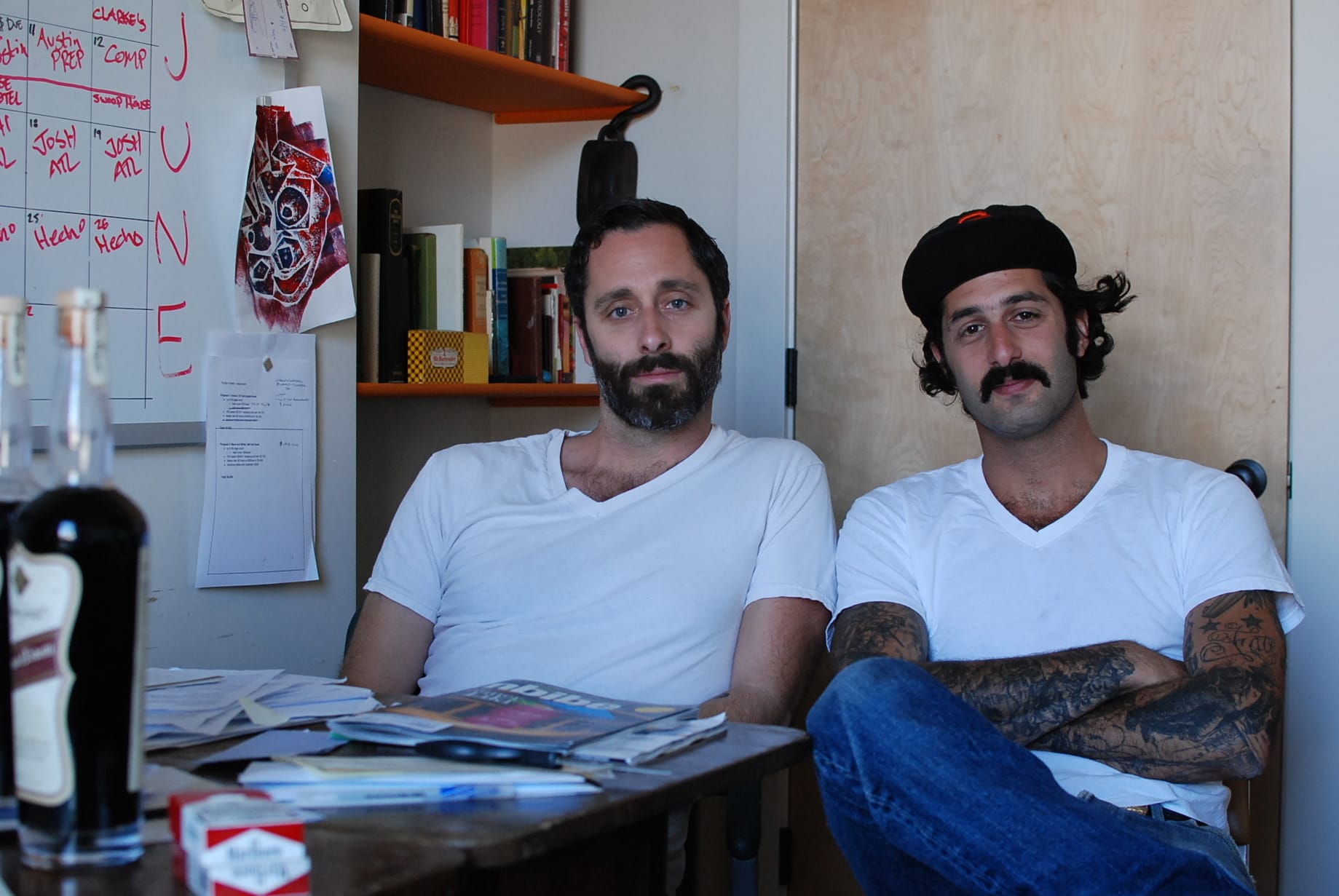
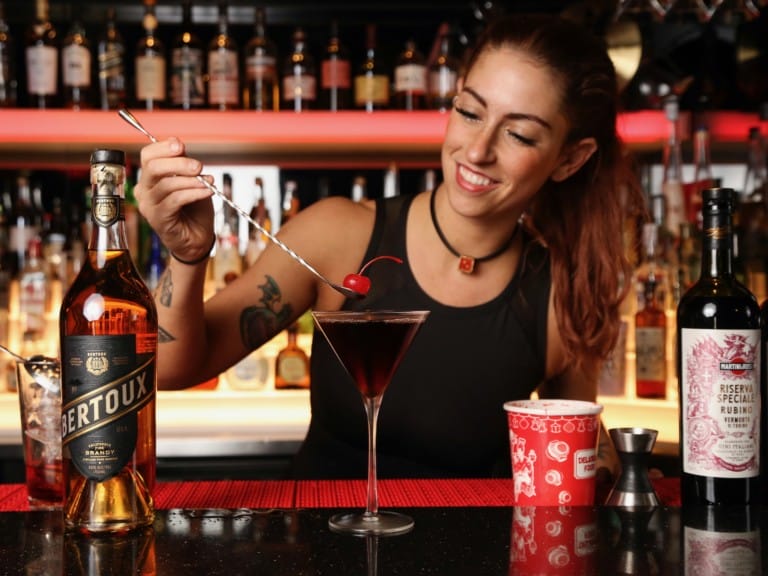
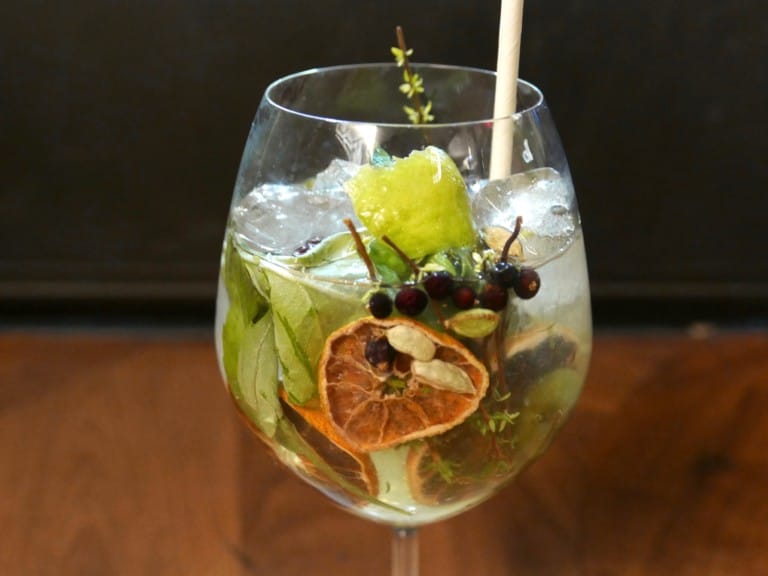
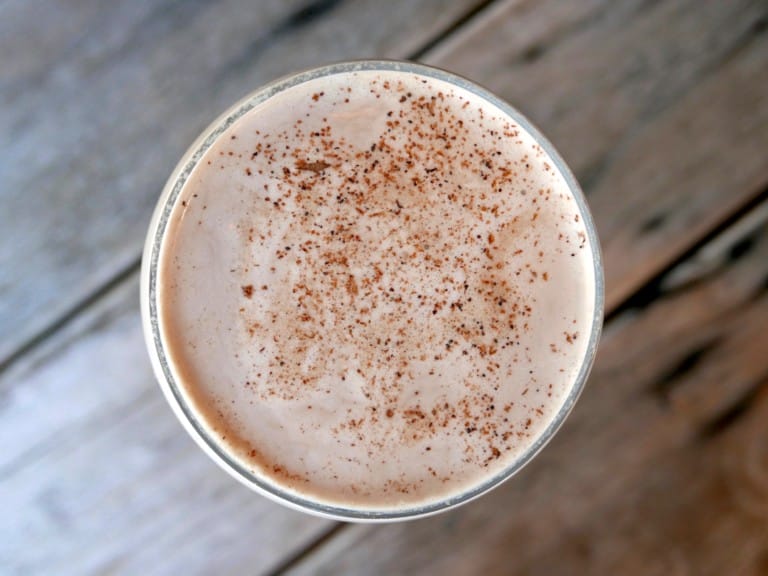




Leave a Comment